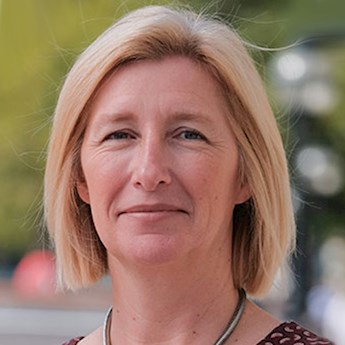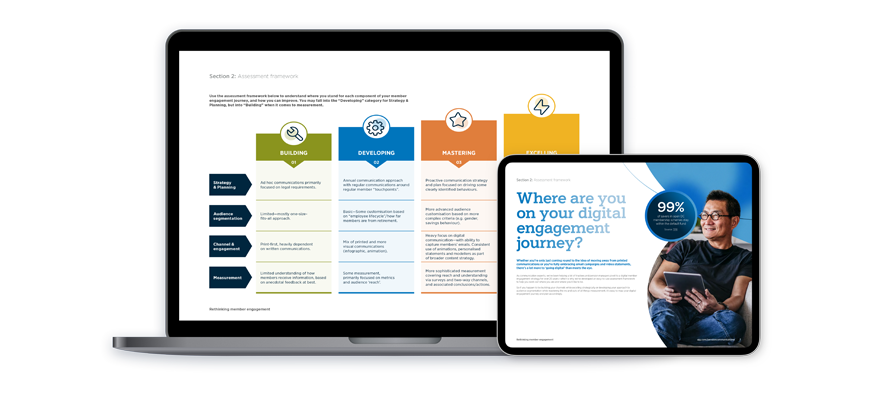
The word ‘pension’ itself is somewhat disconnecting for many. Becoming an ‘old-age pensioner’ isn’t just borderline depressing for the younger generation, it’s way too far into the future to worry about today.
Client Services Director
Financial Wellbeing


The word ‘pension’ itself is somewhat disconnecting for many. Becoming an ‘old-age pensioner’ isn’t just borderline depressing for the younger generation, it’s way too far into the future to worry about today.
Client Services Director
Pensions have a serious PR problem here in the UK. There’s no wonder it’s so difficult to get the younger generation out of the auto-enrollment comfort zone and actively interested in investing in their future.
The word ‘pension’ itself is somewhat disconnecting for many. Becoming an ‘old-age pensioner’ isn’t just borderline depressing for the younger generation, it’s way too far into the future to worry about today (let’s face it, who knows what the retirement age will be for today’s 20-year-old first jobber).
Then there’s the fact that pensions are just so complicated – and when you throw in the perception that you’ve got to be some kind of maths genius to even begin to understand what you need to do to get started, things aren’t exactly looking ‘influencer-worthy’, are they?
So, really, how is any of this appealing, relevant or interesting to anyone under 30, 40 (or even 50) these days? Especially when you consider how COVID-19 has impacted many people’s personal finances, fostering something of an attitudinal shift when it comes to the ‘real’ value of money.
Where’s the emotional connection for the younger generation? How can they relate to a future which, right now, is more unknown than ever? And how do we compete with the engrained FOMO of Generation Z onwards?
The past 18 months have been tough for a lot of people in myriad ways. It’s safe to say that, paying into a pension pot might not be at the top of everyone’s post-pandemic priority list at the moment.
Because of this, the need for help and guidance around financial wellbeing has never been more necessary – and that’s why we need to start getting personal.
To shift the narrative, we need to move away from the idea of the workplace pension being a cold hard financial transaction, a means to an end, or a post-career contingency plan.
And the trick to this lies in flipping the way we present information to members – looking at re-framing of the pensions proposition to focus on the ‘how your money makes a difference’ element for those who pay into the scheme (and those who don’t – yet).
We need to focus on the lifestyle factor, making it aspirational but realistic; self-serving but grounded in a moral standpoint.
We need to help people realise that paying into a pension isn’t really about the money; it’s about the opportunity that investing in your own future can give you – and others.
So let’s change the conversation, placing sustainability at the centre and helping people understand that it’s all about finding the right fit for you, your family, your community, your legacy.
Let’s re-frame pensions as a ‘lifestyle choice’, start talking about the socio-economic impact of investing in ethical funds and helping members understand what other people, just like them, are doing about their financial futures – and let’s do it in an engaging, inclusive and accessible way.
The truth is, aspiration is age neutral. This is about engagement for the young and awareness for the not-so-young.
Because right now people of all ages are tuned in to changing the world, protecting the planet and building a society that gives a damn about the next generation.
Sustainability, responsibility and authenticity matters, which is why it’s so important to shout about the fact that ethical investment choices in pensions really do exist – and to shout loud enough that people listen.
Because the people that matter – the investors of the future – probably don’t know this.
Which is why we need to show members that they can be true to themselves by investing in the causes they care about – this is about paying it forward, giving yourself permission to save with a clear conscience.
The belief that you need to hanker down during a crisis and invest in tried and trusted safe havens has all changed in recent years and continued during the pandemic. Funds that have invested in environmental, social and governance (ESG) activities have outperformed their benchmarks this year. We’re witnessing a major and sustained change in behaviour – and not just among the younger investor.
It’s all about a sustainable lifestyle and supporting important sectors, such as healthcare or low-carbon businesses.
It’s all about balance – of people and planet against profit.
It’s not about selling out, it’s about putting in and investing in the future – of themselves, their peers, their planet.
‘Choose less and feel better,’ says Barry Schwartz – there’s definitely something in that, isn’t there?
